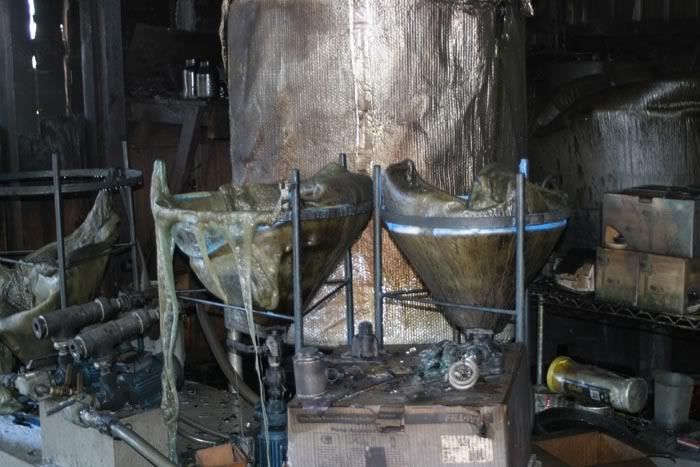Hi everyone,
I'm starting to get my head around the possibility of converting our 4 Ford Transit vans to B100. They range from 1999, up to brand new 2006 TDCi.
Major concerns for me are:
-Must be economically competitive.
-Must be convenient to refuel.
So that boils down to supply. Our operation is based in Melbourne CBD, and we don't really have a "depot" as such. So I'm unsure how to go about keeping enough fuel around. I'm about to go through fuel consumption calculations this week, but I we are using roughly 80-90L per van per week, so would need something like 350-400L a week to keep us away from the dino-servos.
While the servo in Boronia seems to be good - it's basically too far to get to as regularly as we require (happily the price seems to be the same as regular dino though)
I haven't yet spoken to FINA in Thomastown.
Does anyone have suggestions for how to go about obtaining and storing 400L+ of B100 for regular pumping?
We have the vans, and the manpower to easily move 200L drums to someone's garage/yard, but would that be legal, or even feasible?
Is there a tanker service in Melbourne for delivery of maybe 1000L? At what point could I hope to obtain any kind of volume discount?
I've been looking for an opportunity to run biodiesel for several years, and I'm optimistic this is it!
I'm starting to get my head around the possibility of converting our 4 Ford Transit vans to B100. They range from 1999, up to brand new 2006 TDCi.
Major concerns for me are:
-Must be economically competitive.
-Must be convenient to refuel.
So that boils down to supply. Our operation is based in Melbourne CBD, and we don't really have a "depot" as such. So I'm unsure how to go about keeping enough fuel around. I'm about to go through fuel consumption calculations this week, but I we are using roughly 80-90L per van per week, so would need something like 350-400L a week to keep us away from the dino-servos.
While the servo in Boronia seems to be good - it's basically too far to get to as regularly as we require (happily the price seems to be the same as regular dino though)
I haven't yet spoken to FINA in Thomastown.
Does anyone have suggestions for how to go about obtaining and storing 400L+ of B100 for regular pumping?
We have the vans, and the manpower to easily move 200L drums to someone's garage/yard, but would that be legal, or even feasible?
Is there a tanker service in Melbourne for delivery of maybe 1000L? At what point could I hope to obtain any kind of volume discount?
I've been looking for an opportunity to run biodiesel for several years, and I'm optimistic this is it!



 fuhrer suggested, get yourself a drum pump.
fuhrer suggested, get yourself a drum pump. . Tom is offering to MBDC members B100 for a dollar a litre,
. Tom is offering to MBDC members B100 for a dollar a litre, (economics are obviously more important to you than the environment or the future of your childrens planet.)
(economics are obviously more important to you than the environment or the future of your childrens planet.) So
So
Comment